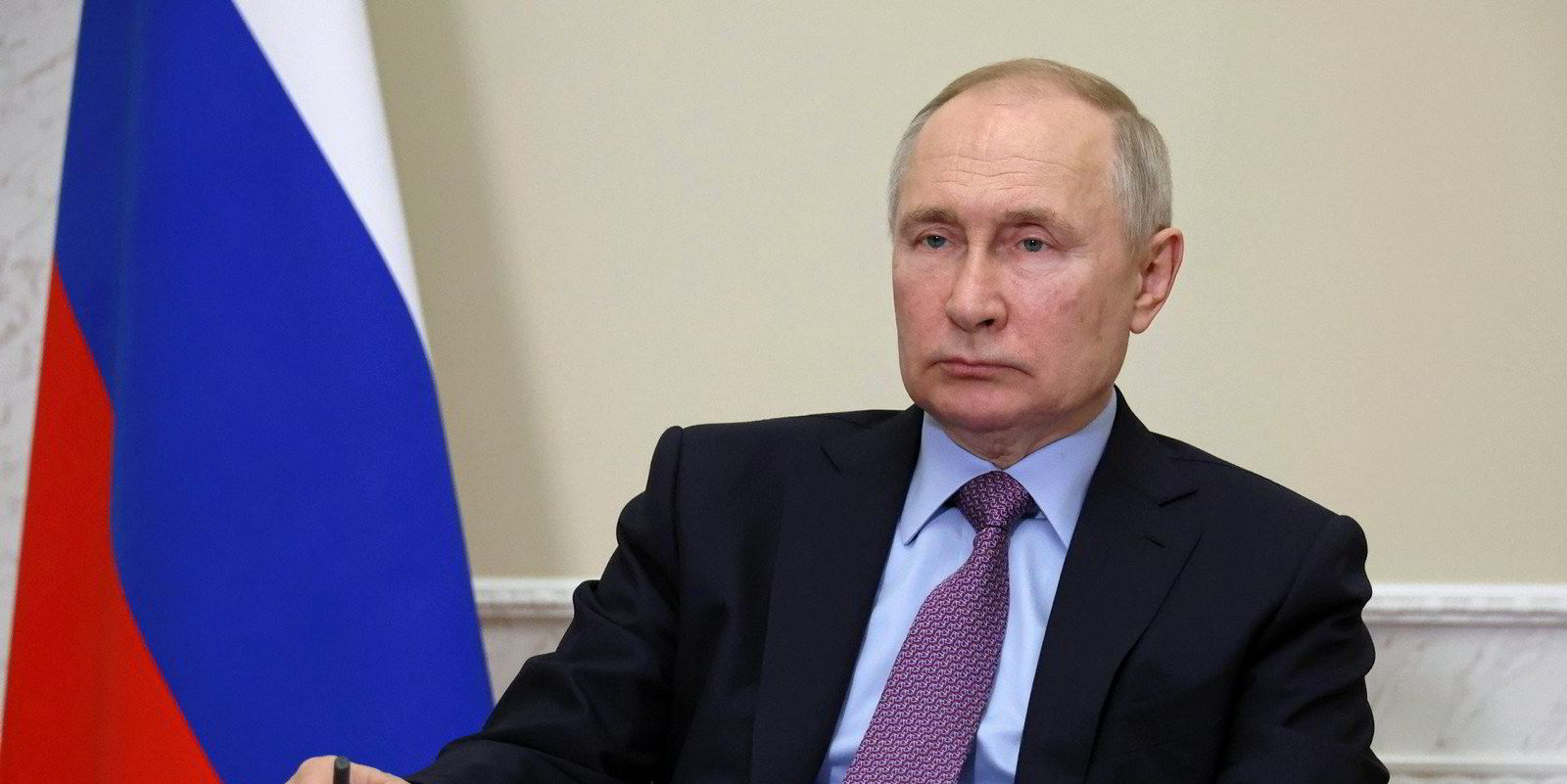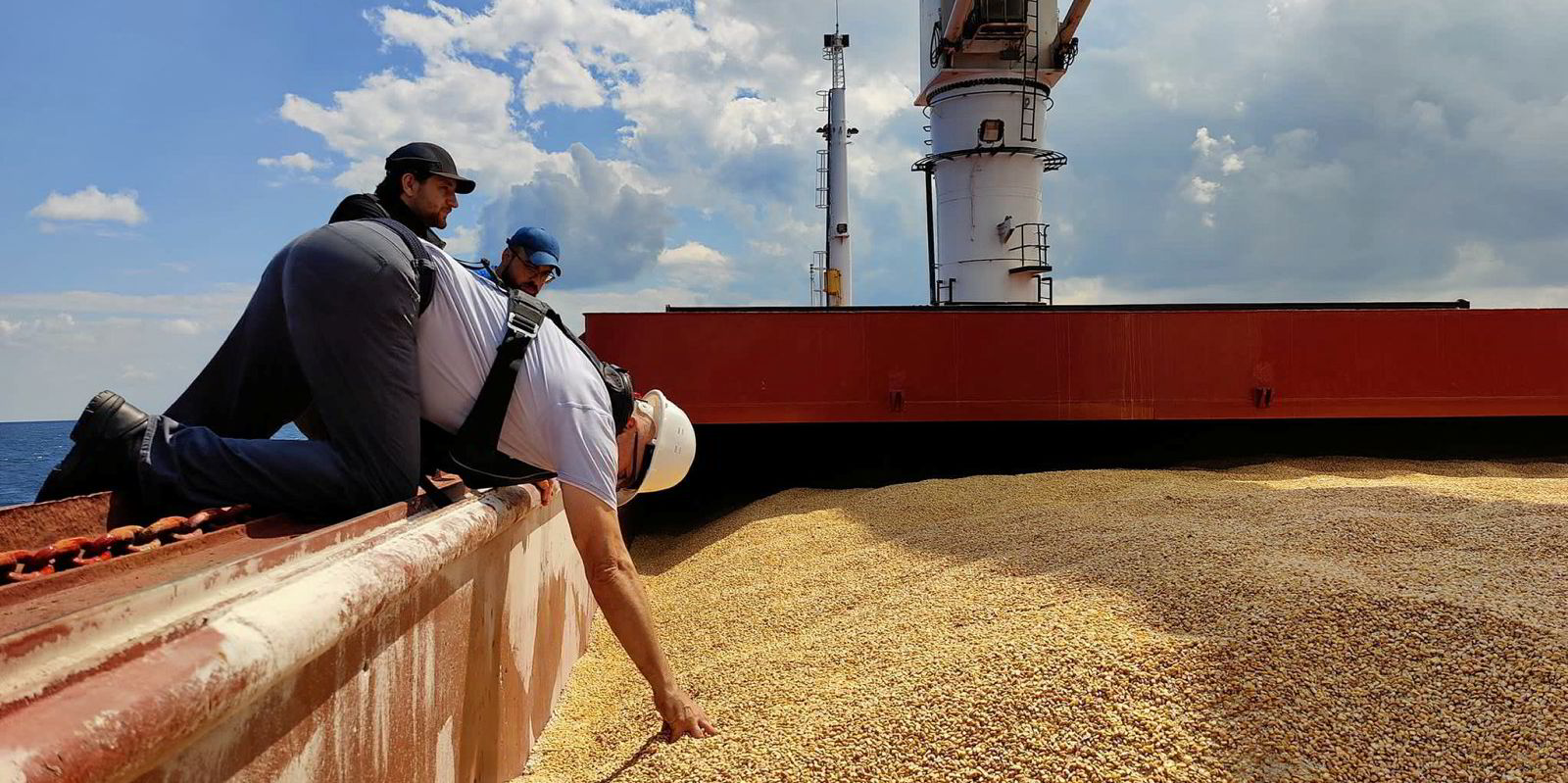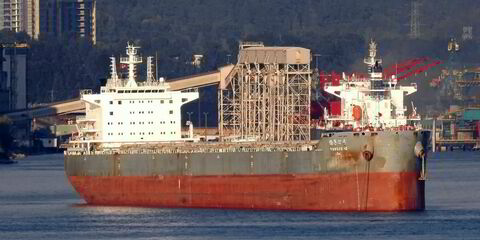Two ships laden with Ukrainian grain are to set sail from Odesa on Monday and it looks like they will be the last to do so under a United Nations-led scheme for the seaborne export of Ukrainian grain.
Laden almost to the brink with corn, the 43,800-dwt TQ Samsun (built 1996) and the 43,600-dwt TK Majestic (built 1994) are expected to disembark on 10 or 11 July, according to sources.
These are the last two vessels that Russia’s inspectors with the United Nations’ Black Sea Grain Initiative (BSGI) cleared for passage through the Turkish Straits towards Ukraine on 28 June.
The Russian inspectors have not allowed any other ships through the Bosphorus since. This left a batch of about 10 BSGI vessels mid-journey in the Black Sea, ballasting towards Ukraine or returning laden from the war-torn country.
Starved of fresh vessels joining the queue, the pipeline of ships gradually dried up with the TQ Samsun and the TK Majestic being the last left.
The two Turkish ships are the 1,003rd and the 1,004th vessels to use the grain corridor, which got up and running in August last year and helped Ukraine bring nearly 33m tonnes of its foodstuffs to world markets.
It does not look like there will be any others to follow them.
The Russian government has repeatedly stated that it sees no reason to give the initiative a new lease of life when it expires on 17 July.
On 5 July, the Russian foreign ministry used language strongly suggesting that the only reason Moscow was still in the scheme was to wind it down in an orderly fashion.
Russia was taking steps so “that all ships participating … can successfully complete their mission and leave the Black Sea before the end of its [the BSGI’s] validity period”, foreign ministry spokeswoman Maria Zakharova said.
The only glimmer of hope for the BSGI is that Russia has not formally and unequivocally declared that it is pulling the plug on it yet.
Some observers believe this means that there might be room left for some last-ditch agreement to save the deal.
Speaking in New York late on Monday, UN spokesman Stephane Dujarric reiterated that the international organisation does everything in its power to help the deal move along.
“It’s high stakes,” Dujarric said.
All circumstantial evidence, however, suggests that hopes for a revival may be overblown.
Russia has long insisted that it consented to the BSGI back in 2022 only as part of a package deal that also included a UN pledge to facilitate Russian agricultural and fertiliser exports, which are hobbled by Western sanctions.
According to Russia, however, none of these obstacles has been removed or softened so far — from banking hurdles to machinery import restrictions and port bans to sky-high marine insurance fees.
Moscow was once more close to scuppering the grain deal when it last expired back in May.
Russian President Vladimir Putin only consented to a previous extension as a favour to mediator Turkey, whose president and potential Putin ally Recep Tayyip Erdogan was facing an election at the time.
Russia’s relations with Turkey, however, have deteriorated since.
In June, Ukrainian drones attacked Russian warships near Turkish waters. On 8 July, Erdogan infuriated the Russians when he allowed five high-profile Ukrainian officers held in Turkey as part of a prisoners of war exchange to return to Kyiv.
Erdogan’s stature
Some observers suspect that one reason why Erdogan reneged on an agreement to keep the five Ukrainian officers in Turkey was that he was miffed by Russian moves to kill the grain deal.
The BSGI not only lifts Erdogan’s stature as an international mediator but it has also been lucrative for Turkish grain traders and shipping companies who have been the corridor’s second-largest user, after Greece.
On 9 July, Turkey’s foreign minister Hakan Fidan and his Russian counterpart Sergei Lavrov discussed the grain deal in language suggesting that the two countries are already exploring grain cooperation outside the framework of the BSGI.
“They [Lavrov and Fidan] … touched upon the prospects for further cooperation on issues related to ensuring global food security in the face of the inability of Western states to take the steps necessary to implement the well-known ‘package initiative’ of the UN secretary general,” the Russian foreign ministry said.





